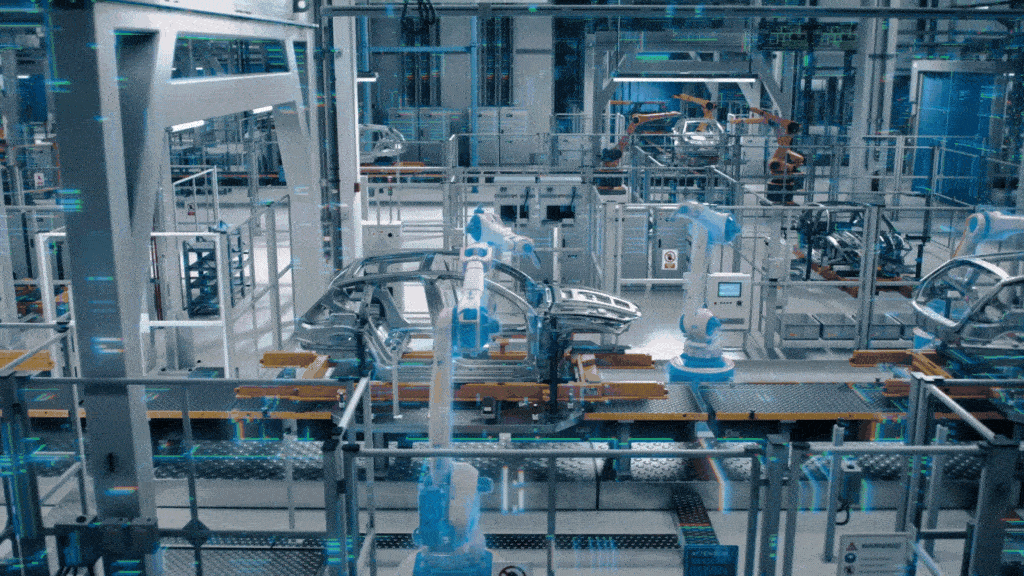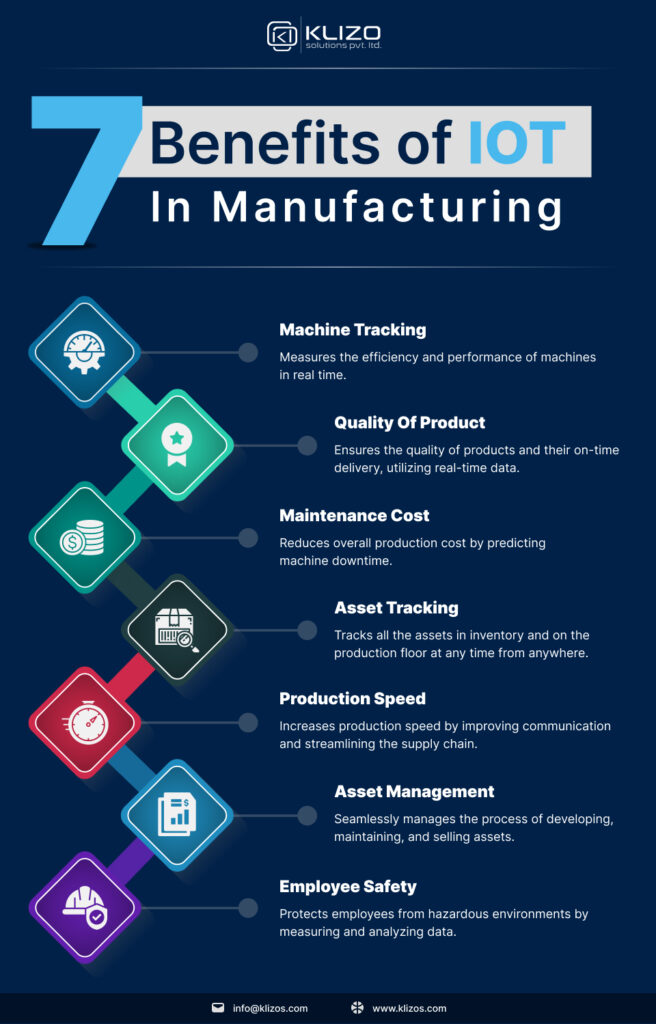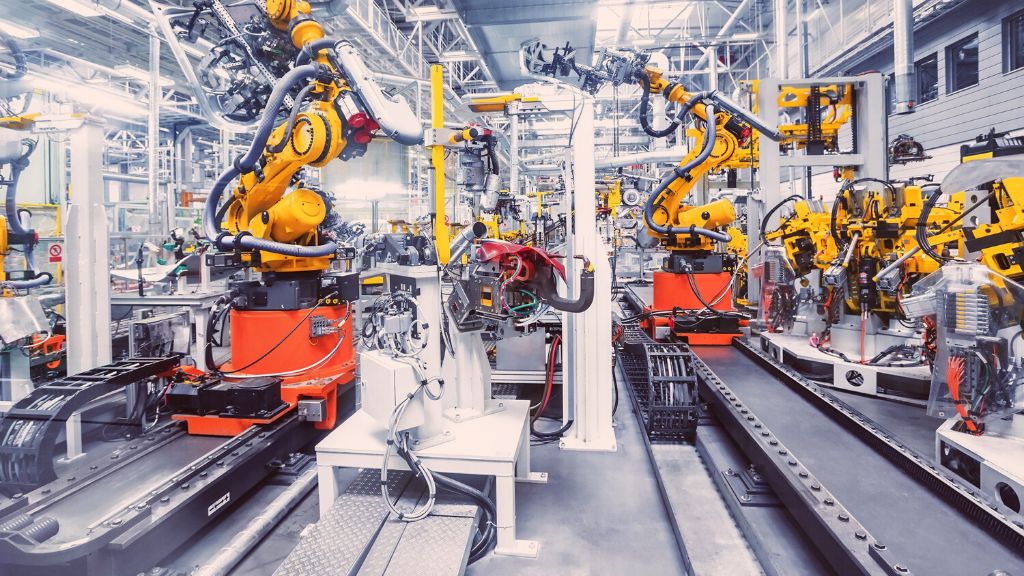


The manufacturing industry is always in high demand. Thanks to globalization, the need for mass production has increased more than ever!
But with increased demand comes the pressure of maintaining higher productivity and efficiency. And that’s where advanced technologies like Artificial Intelligence and the Internet of Things come to the rescue!
Opening up new avenues for manufacturing businesses, AI and IoT in manufacturing industry focus on improving various aspects of the manufacturing business and boosting its efficiency by extending human capabilities.
For manufacturing businesses, their priority is to create high-quality products in an efficient and optimized way. And it is with technologies like IoT and AI that manufacturers can stay relevant for the future and resilient to the present.
Are you into manufacturing and wondering how these technologies can reform the manufacturing industry? Then this article here is enough to convince you to become one of the early adopters of AI and IoT in manufacturing!
Manually made engineering designs don’t always work for the manufacturing industry! At times, they can be faulty, which may result in pausing production, impacting both the industry and the consumers.
But with the application of AI in manufacturing (read AI algorithms), it’s possible to create optimal and generative designs that reduce the risks of defective ones.
Still, wondering how AI can be used in manufacturing? Well, using AI algorithms, you can give a clearly defined design as input and get a conceivable version of different design permutations, which you can use to determine the design idea that worked and the ones that didn’t.
The Japanese multinational automobile manufacturer, Nissan, uses AI algorithms to create outstanding car designs that no one has ever seen in the blink of an eye.
The manufacturing industry involves numerous risky activities. And manually dealing with them is riskier than ever!
But with AI and IoT in manufacturing (e.g., Cobots, industrial robots), high-risk tasks like welding, drilling, die casting, painting, product inspection, etc., can be completed with less impact, more accuracy, and precision. These technologies help to eliminate the risks of injuries or casualty.
Unlike humans, robots do not have any limitation of working in shifts, and their productivity does not get compromised when working continuously.
Plus, with the help of IoT, robots can not only be programmed to work 24X7 but are easy to supervise and can completely replace humans for performing repetitive tasks.

Do you know not having a solid supply chain management system can halt production in the manufacturing industries?
Yes, supply chain management is of crucial importance in any manufacturing business. Continuous and error-free supply chain management is necessary to maintain the consumption of resources, inventory, production rate, and other forms of financial requirements.
And AI and IoT in manufacturing do exactly what is required to develop a smooth and flawless supply chain management system! Plus, integrating IoT also helps to use the resources judicially, which ensures energy savings and reduced production costs.
The British luxury automobile maker Rolls Royce uses advanced image recognition and AI algorithms to power its self-driving ships, which ensures the safe transport of its cargo and boosts its supply chain efficiency. Self-driving cars are one of the best AI and IoT examples where these two technologies work together.
Have you heard about machine vision or computer vision? Well, it is a technology that uses HD cameras to detect machine defects, validate staff work time, track production, and handle quality control.
Plus, using machine vision, various safety, and health-related issues can be averted, such as it can help in identifying whether the workers are wearing proper safety equipment or not and prevent risks of contamination.
Even for tracking the raw materials and parts, machine visions can read the barcodes or texts, which contributes to automating the warehouse inventory.
Any guesses about what this machine vision technology depends on?? The use of AI in IoT, of course!
Inventory management is of seminal importance to keep the production work going in the manufacturing industry, as it keeps the workflow running.
With AI and IoT in manufacturing, manufacturers can better analyze the data regarding the demand and supply of raw materials for inventory.
The AI applications in manufacturing help to better manage the inventory by keeping the final manufactured products ready to sell and providing manufacturers insights about the future demand for products based on the records of previous orders.
IoT helps the entire industry stay connected and thus creates a seamless environment essential for achieving high-quality products and higher production volume. From employees to industry systems and assets, IoT connects everything, and flawless connectivity automatically reduces downtime.
The real-time data that IoT collects help to know about the machines and their present conditions and predict possible problems with the machinery, which keeps the manufacturing company prepared in advance.
AI and IoT in manufacturing can detect the condition of machinery and determine whether it needs maintenance so that the production work does not get interrupted.
Thanks to IoT solutions, now it’s possible to perform continuous and real-time tracking of staff (IoT-enabled wearables), assets, and inventory.
IoT-enabled sensors transmit equipment data in real-time, which allows the manufacturing authorities to analyze and predict asset conditions using advanced AI analytics.
With real-time tracking, AI and IoT in manufacturing also help detect environmental conditions like a breakdown, a fire, or a leakage. So it’s evident that to speed up and simplify your business operations, boost productivity levels, and enable your staff to work smarter and more efficiently, applying IoT and artificial intelligence in business is a must!
We have already talked about how AI and IoT in manufacturing help with industrial automation. Now know that they can help reduce the human intervention required for monitoring the performance of machinery.
Thanks to these technologies for enabling the machine to machine communication, networked devices can exchange information directly with one another without requiring any human intervention. So, instead of the staff monitoring and maintaining machines on the manufacturing floors, sensors can monitor the performance and equipment.
Not to mention IoT and AI also reduce the time usually taken by humans to complete tasks. One of the IoT examples in manufacturing is that when machinery stops functioning, IoT sensors can immediately detect it from a distance and don’t require human intervention!

IoT helps to streamline the workflow since it has all the data about the resources used for production. It keeps track of the logistics used daily and lets the manufacturing industry draft the requirements of resources easily.
Plus, using sensors, IoT can also calculate the power consumption of each machinery, which promotes better optimization of all the resources used!
And when you can ensure maximum use of available resources, better optimization of manufacturing cost follows. So, by using AI and IoT in manufacturing, manufacturers can derive maximum output from the available resources, which boosts efficiency, productivity, and ROI.
The secret to making your business more efficient is not just keeping tabs on the latest technology trends but implementing them as early as possible!
After all, technologies like IoT and AI aim at facilitating and optimizing the different processes of manufacturing. And integrating AI and IoT in manufacturing can make your business processes and workflows more efficient and easily manageable!
As a result of adopting AI and IoT solutions for the manufacturing industry, manufacturers have observed benefits such as cost reduction, manufacturing efficiency, decreased machine downtime, enhanced designs, reduced labor cost, revenue growth, smart tackling of operational challenges, resilience (irrespective of the supply chain disruptions), improved efficiency, reduced wastage, end-to-end visibility of manufacturing operations, superior customer experience, operation efficiency, etc.
Plus, as per Insider Intelligence, the number of IoT devices will be more than 64 billion by 2025. And according to Gartner, at least one AI component is expected to be implemented by around 80% of IoT projects.
So, are you interested in getting some top-notch, smooth, and streamlined AI and IoT solutions for your manufacturing business?
Then get in touch with our tech experts right away! At Klizo Solutions, we have incredibly talented people dedicated to designing, developing, and implementing the latest technologies in the smoothest way possible!
Previous article
Joey Ricard
Klizo Solutions was founded by Joseph Ricard, a serial entrepreneur from America who has spent over ten years working in India, developing innovative tech solutions, building good teams, and admirable processes. And today, he has a team of over 50 super-talented people with him and various high-level technologies developed in multiple frameworks to his credit.

Subscribe to our newsletter to get the latest tech updates.